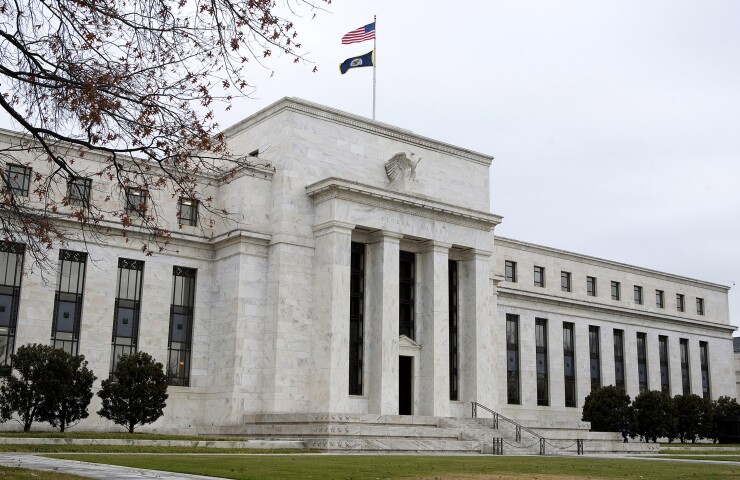Federal Open Market Committee members agreed the economy was recovering “faster than expected,” while business investment appeared to be rebounding, but they saw the overall gain as “uneven.”
"In particular, with the reopening of many businesses and fewer people withdrawing from social interactions, consumer spending was rebounding sharply and appeared to have recovered about three-fourths of its earlier decline," according to the minutes of the Sept. 15-16 meeting
"Business investment, which had plummeted in the second quarter, appeared to have begun to turn around," the minutes state. "They pointed to data showing gains in capital goods orders and shipments as well as improved business sentiment.”

Despite the positives, the panel termed the recovery "uneven," with businesses depending on in-person contact still hindered.
“While many business contacts reported progress on adapting to the pandemic, others noted that industries that relied more on person-to-person interactions continued to struggle.”
The participants based their forecasts on more "fiscal policy support," which if not forthcoming this year, as Chair Jerome Powell has previously stated, would slow the recovery.
And while "consumer prices had increased more quickly than expected in recent months and ... market-based measures of inflation compensation had increased moderately over the intermeeting period, although they remained low,” the minutes said, they were caused by price hikes “in sectors such as consumer durables in which demand had risen after experiencing a large decline earlier this spring.”
Participants still “generally” see inflation as “subdued” and "the overall effect of the COVID-19 pandemic on prices would be disinflationary.”
Despite a “highly uncertain" inflation outlook, "a number of participants" see inflation running below the Fed's 2% target "for a significant period before moving moderately above 2% for some time — consistent with the Committee’s revised consensus statement.”
In terms of forward guidance, "a couple" of members wanted "even stronger, and less qualified, outcome-based forward guidance," the minutes said. Specifically, they wanted the statement to say the fed funds rate target would remain at the zero lower bound until "inflation had moved above 2% for some time," since inflation has missed the target for a "lengthy period." Those wanted the stronger statement "judged that it was critical to demonstrate the Committee’s commitment to achieve outcomes in which inflation averages 2% over time."
The panel thought it appropriate for the “Federal Reserve to increase its holdings of Treasury securities and agency MBS at least at the current pace."
According to Ed Moya, senior market analyst at
If the economy gets a $5 trillion stimulus boost and vaccines by the middle of next year, the economic recovery could “warrant a couple rate hikes.”
“The uncertainty to the outlook is bigger than ever, but with the virus spreading strongly across America, even before the potential winter wave, investors should not expect the Fed to stand idle once the election has passed,” Moya said.





